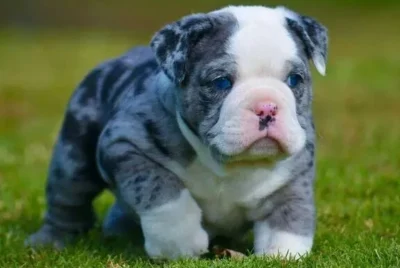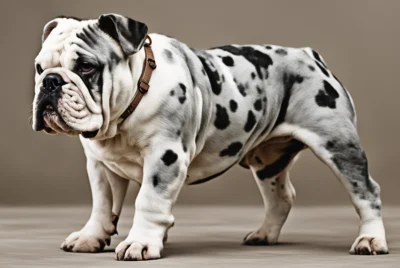Discover the Charming Traits of Basenjis Dog Breed
If you’re curious about Basenji dogs and their endearing characteristics, you’ve embarked on a delightful journey into the world of one of the most unique and cherished dog breeds worldwide. Basenjis, often called “barkless wonders,” captivate dog enthusiasts with their captivating traits, distinctive appearance, and lovable personalities.
In this article, we’ll explore the charming traits that make Basenjis stand out in the canine kingdom and understand why they hold a special place in the hearts of dog lovers everywhere.
Basenji Origins and Background
The Basenji, a small hound breed with a square, athletic build, hails from the heart of Central Africa. Its lineage traces back to ancient Egyptian pariah dogs and Congo hunting dogs, attesting to its rich history and timeless charm. The name ‘Basenji’ is derived from the phrase ‘dog of the bush’, echoing its African roots and highlighting its inherent nature as a basenji dog, also known as a Congo dog.
Adorned with a short, smooth coat, this breed is favored for not shedding or emitting a strong odor. It also comes in a variety of colors, including:
- Chestnut red
- Black
- Tricolor
Brindle
Each hue is embellished with white markings, adding a touch of elegance to their appearance.
Upright ears, almond-shaped eyes, and a wrinkled forehead give Basenjis an aura of wisdom and alertness. A tail curling over the back adds a playful touch to their stature, creating a unique look that sets the Basenji apart.
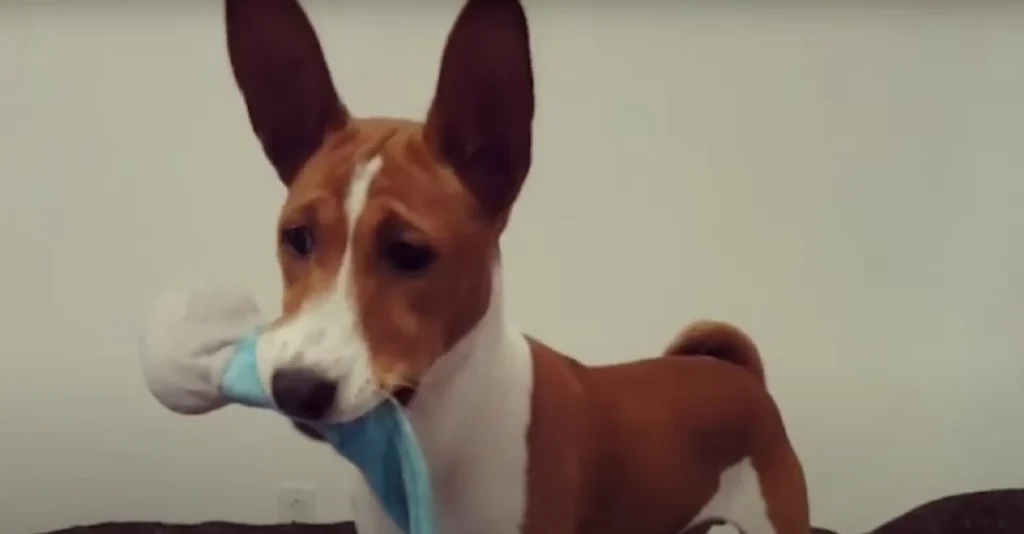
Distinctive Basenji Features
The Basenji’s distinctive traits include:
- Standing at 16 to 17 inches in height, perfect for a basenji puppy
- Weighing between 22 to 24 pounds
- Having an agile body and slender physique
- Possessing almond-shaped eyes
- Having an inexhaustible source of energy
These traits make intelligent dogs a dog breed to reckon with compared to other dogs in the realm of domestic dogs.
There’s an intriguing debate about the Basenji breed’s classification. Some argue for it to be classified as a sighthound, while others believe it fits better as a scenthound.
Regardless of the classification, one thing is for sure – the Basenji’s vibrant energy and agile nature make it a breed unlike any other.
Barkless Dog
One of the most enchanting facets of the Basenji breed is its serenade. Unlike the typical dog bark, the Basenji is known for its unique yodel-like sound, fondly referred to as a ‘barroo’. This melody can be attributed to the Basenji’s voice box structure, which is more narrow and flatter compared to other breeds.
This distinct vocalization has earned the Basenji the title of the ‘barkless dog,’ making it a standout amongst other breeds.
The Independent Basenji Personality
In terms of personality, Basenjis exhibit:
- Independent and feline-like temperaments
- Often aloof, they are judicious with their fondness, saving their loyalty and love for their chosen family members.
This sense of independence combined with intelligent thinking, makes them an intriguing breed to live with.
A Basenji can be reserved with strangers, yet they demonstrate loving behavior towards their family. This dichotomy adds to their mystique, making them a breed that commands respect and admiration from all those who encounter them, including other Basenji Basenjis. Joining a Basenji club can be a great way to connect with fellow enthusiasts.
Despite their aloofness, Basenjis can interact appropriately with other breeds of canines. However, they may display aggressive behavior towards other Basenjis or dogs of the same gender. This makes proper socialization and close monitoring of their interactions with other animals essential.
Read also: Understanding Dog Behavior Issues and Solutions
Living with a Basenji: Exercise and Environment
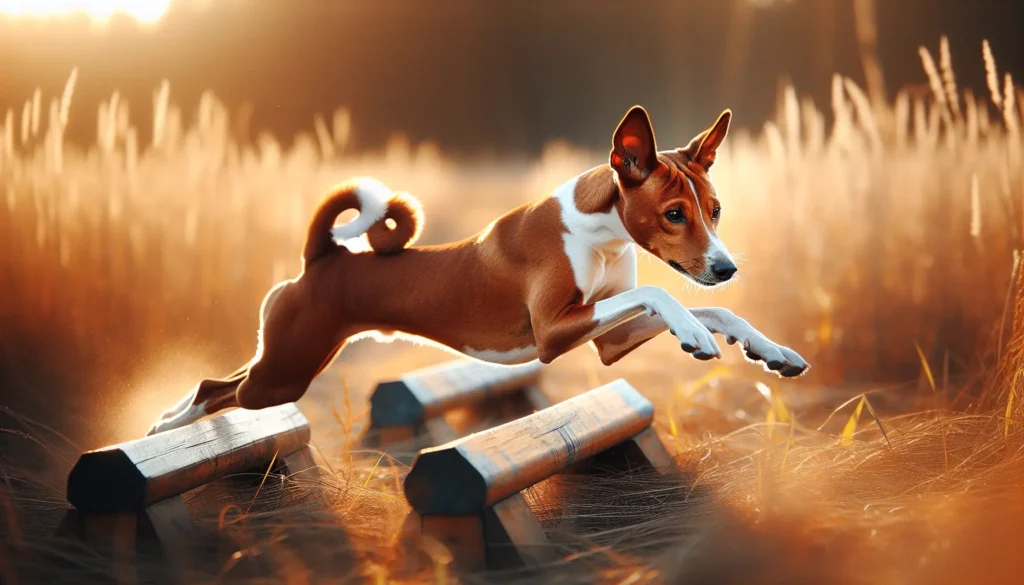
Sharing your home with a Basenji can be a lively experience. These dogs, known for their boundless energy, require daily exercise to maintain their health and vigor. As lovers of outdoor activities, they are best suited in a home that can offer copious opportunities for physical activity and mental stimulation.
Their inclination towards wandering could invite trouble, including encounters with snakes or other wild animals. Hence, providing a secure environment for them becomes crucial. Despite their need for a secure environment, they can adjust to apartment life provided they get adequate exercise and stimulation.
Canine Sports
A Basenji could be your perfect companion if you lead an active lifestyle. They show prowess in various dog sports such as agility, lure coursing, and obedience. These activities provide both physical and mental stimulation, making them a perfect outlet for this energetic breed’s boundless energy.
Training and Socialization
The process of training and socializing a Basenji offers a gratifying challenge. Given their independent nature and tendency for self-thinking, early training and socialization become pivotal. This breed thrives on positive reinforcement, which, coupled with patience, can lead to successful training.
Socialization of a Basenji should start at an early age. This is essential for their development and overall wellbeing. By familiarizing them with different environments, people, and animals, you can help them grow into well-adjusted adults. However, it’s important to note that their training should be kept interesting as Basenjis can easily get distracted when something more stimulating captures their attention.
Despite their independent streak, consistent training from a young age can help shape a Basenji into a well-behaved and obedient companion. Just remember, patience and positive reinforcement are key.
Read also: 2023’s Best Rubber Dog Toys: Unveiling the Top Two
Health Concerns and Life Expectancy

Generally, Basenjis are healthy dogs, typically boasting a lifespan of 13-14 years. However, like all breeds, they may be genetically predisposed to certain health conditions. These include Fanconi Syndrome, Progressive Retinal Atrophy (PRA), and hip dysplasia.
It’s important to remember that not all Basenjis will get these diseases, but awareness is key. Potential Basenji owners should be mindful of these common health issues and ensure their dog comes from a reputable breeder who screens for these conditions in their breeding stock.
PRA, in particular, is a collection of ocular conditions that can lead to progressive loss of vision, and in some cases, complete blindness. Responsible breeders ensure that the Basenjis they breed have been tested for PRA, and will not breed those with the condition.
Grooming and Maintenance
When it comes to grooming, Basenjis are a low-maintenance breed. They require only weekly brushing and periodic health assessments. Their grooming habits, reminiscent of cats, help to keep their coats clean and lustrous, reducing the need for frequent baths.
During their weekly brushing, it’s a good idea to evaluate their coat sheen, nail length, ear and dental health. A swift swipe with a cloth or brush once or twice a week is usually enough to maintain their cleanliness.
In addition to brushing, a Basenji’s nails should be trimmed regularly, ideally once a month. Their ears should also be inspected weekly to prevent any potential infections.
Basenjis and Family Dynamics
Within a family setting, having a Basenji around can be a delightful experience. They may not be particularly fond of young children; however, they can be excellent companions for older, mature children with appropriate interaction and supervision. Their demeanor with children can vary, but with adequate socialization, they can coexist harmoniously.
However, their strong hunting instincts can potentially pose a challenge for a hunting dog. They may perceive small pets as potential prey, making it essential for them to be raised with cats or other small animals if they are to be trusted around them.
It is also crucial to teach children how to properly approach and touch dogs, as this can help prevent any potential issues. With the right guidance and supervision, a Basenji can become a loving and loyal member of your family.
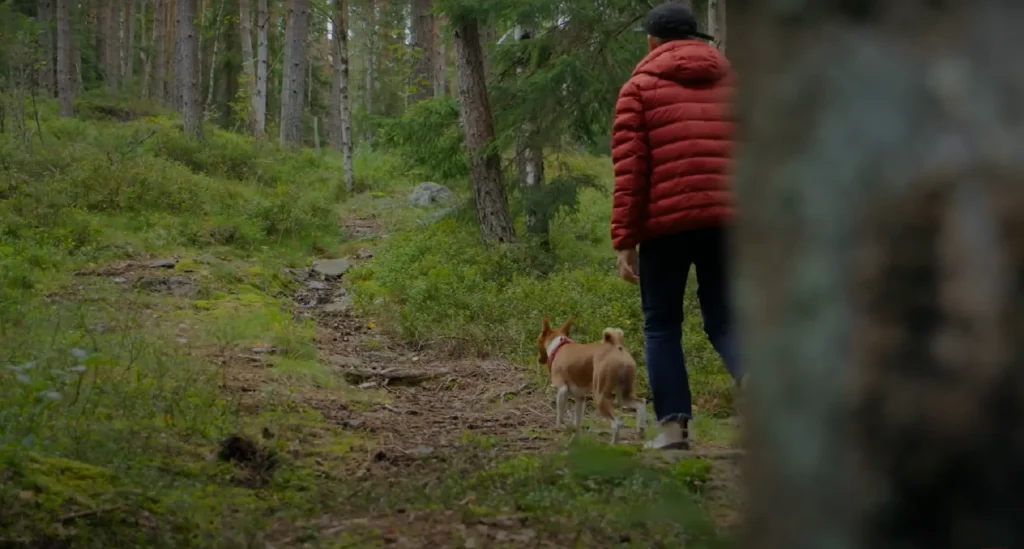
Choosing a Reputable Breeder or Rescue
If you are considering welcoming a Basenji into your home, it’s highly important to opt for a reputable breeder or rescue organization. Reputable breeders are dedicated to their craft. They strive to raise puppies that are healthy and well-socialized, creating the perfect companions. They evaluate their breeding stock for health issues, socialize their puppies from a young age, and offer lifetime support.
In contrast, backyard breeders tend to prioritize profit over the well-being of the dogs. They may not take adequate measures to ensure their breeding stock is healthy. Also, their puppies may lack proper socialization. Therefore, it’s essential to do your research and choose a breeder who has the best interests of the dog at heart.
Trustworthy breeders could be identified by:
- Positive remarks and reviews from other reputable breeders
- Recent pictures and data on the parents of the puppies
- A good standing within the Basenji community, the American Kennel Club, and the national breed club
By choosing a reputable breeder, you ensure the health and well-being of your new furry family member.
Frequently Asked Questions
Is Basenji a good family dog?
Basenjis can make very good family dogs as long as they are socialized, trained early, and kept active. They are affectionate toward their families and become fiercely protective of them. They need and enjoy a good romp or run every day and do best with older children who know how to properly interact with pets.
Are Basenjis high maintenance?
Basenjis are low-maintenance dogs that require very little grooming and bathing. They groom themselves like cats, so they don’t have a typical “dog” smell and are often resistant to baths. Overall, Basenjis are quite easy to care for.
Do Basenjis bark a lot?
Basenjis are considered the “barkless dog” due to their yodeling instead of barking, and ancient Egyptians first brought specimens of the breed from the Nile. Although they make some noise with their yodeling, they are generally quite quiet and independent.
Do Basenji dogs like to cuddle?
Basenjis enjoy cuddles, but require patience and dedication from their owners to become the best of friends.
What is the average lifespan of a Basenji?
On average, Basenjis live between 13-14 years.
Take Care Your Basenji with Cuddly Care
The Basenji breed, with its rich history, distinctive features, independent personality, and energetic nature, is unique and captivating. While they may pose a challenge due to their independent thinking and strong prey drive, they can also be a joy to live with, providing companionship and endless entertainment.
With the right training, socialization, and care, a Basenji can become a cherished family member.


